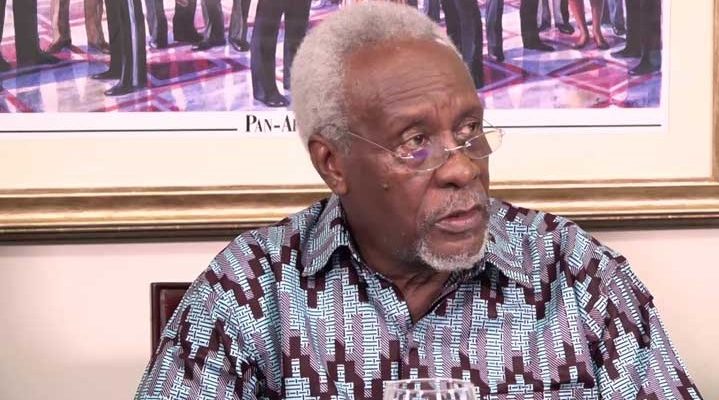
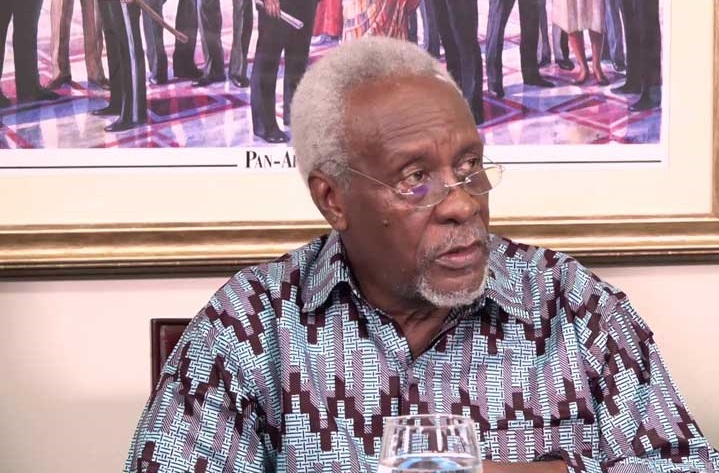
The following is the address by former Prime Minister PJ Patterson during the launch of the AI project at the University of the West Indies on Wednesday, June 11.
Colleagues and friends, pardon me if I begin on a note of nostalgia. It is 71 years ago that I entered these hallowed precincts. At that time, only three of those whose portraits now appear on the wall would have been there. Principal Taylor, before I came, the then-current principal, Dr Graves, and, of course, the Chancellor, Princess Alice. I feel that the wheel has come more than full circle this morning. Thank you all for being present to share this historic moment with us.
On April 12th, when we unveiled the mural of the Pan-Africanists, the Institute announced that we would formally launch in early June, the pilot study for an AI Hub, to advance education, research, finance, trade and industrial development for Africa and the Caribbean.
We are pleased to do so today as we seek to build an edifice of technological innovation on which we deploy our assets within the global economy to leverage our own human capital and resource base under our sovereign control to promote our shared prosperity.
As you have heard from President Oramah, we have obtained some seed funding from the African Export-Import Bank (AFREXIM Bank) to develop a working design to integrate African and Caribbean countries into new, mutually beneficial logistics and enhanced Intelligence partnerships, aimed at harnessing synergies and fostering synthesis in economic and business collaboration.
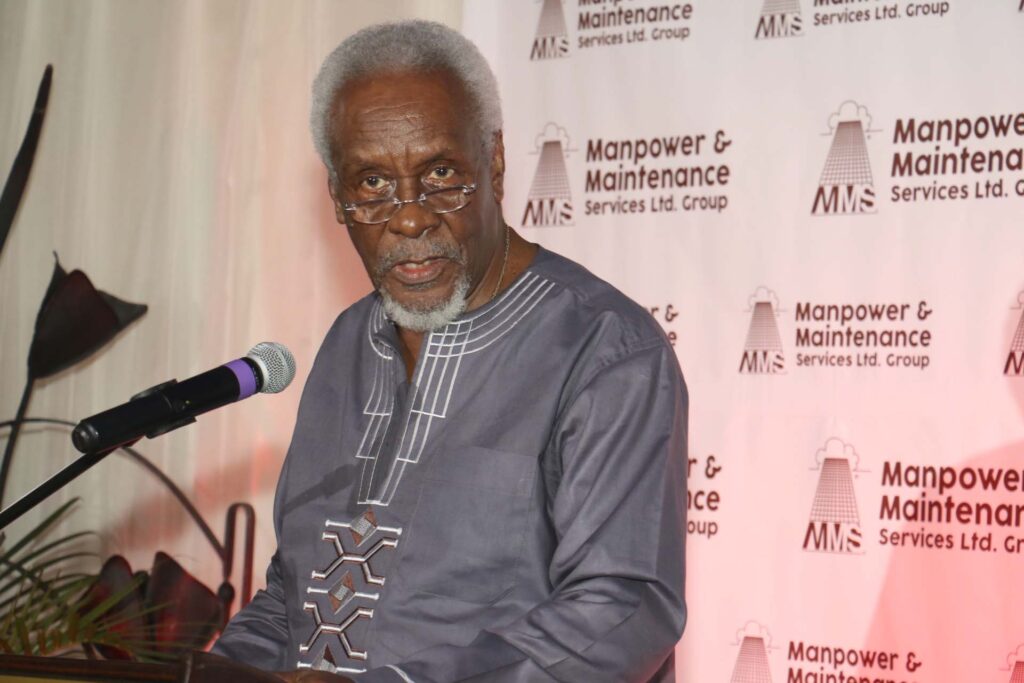
The goal of this envisioned paradigm is to spearhead the development of generative artificial intelligence (AI) industries in these regions into localised knowledge-intensive and value and wealth-creating, globally competitive industries, based primarily on the leveraging of our natural resources, our talent pools, and to secure growth in digital ecosystems.
A wide range of industries in African and Caribbean economies will benefit significantly from the resulting knowledge spill-over. What we are seeking is to fashion an AI ecosystem that not only drives economic growth but also ensures that the specific challenges and opportunities of the 6 regions which constitute Global Africa are fully integrated into the global technological landscape.
Generative AI, as we know, is rapidly reshaping industries across the entire globe. From his care and education to finance and manufacturing to tourism and entertainment. However, the regions of Africa and the Caribbean have until now remained underrepresented in that technological revolution.
Yes, we are rich in natural resources, including minerals for AI infrastructure, such as cobalt, lithium, and even some elements of rare earth. We also have the presence of young, digitally savvy populations, but we lack the structured linkages and the effective collaboration between the Six Regions. That has imposed a limit on our participation in emerging technologies.
I endorse what Professor Oramah has said. We cannot afford for Africa and the Caribbean to remain largely excluded from global technological development discussions, especially in cutting-edge sectors like AI.
The proposed hub will seek to bridge this gap by uniting Africa and the Caribbean by catalysing economic partnerships and fostering innovation in AI. Moreover, as global demand for AI grows, the invaluable need for ethically sourced natural resources and policy frameworks for inclusive wealth creation becomes critical. And I mention wealth creation without any apology; we have been resilient for centuries. It is now time to move for prosperity.
We believe that through this initiative, Africa and the Caribbean can ensure that our economic interests are protected and that we have a say in the advancement of AI technologies, particularly surrounding issues like data governance, resource sustainability, and the socioeconomic effects of automation.
We have five clear objectives. We want to foster economic integration to establish a collaborative hub that fosters economic linkages between Africa and the Caribbean, particularly in the sectors of generative AI and resource extraction for AI infrastructure.
We are seeking to promote technological development, to build and strengthen capacities in generative AI, research and development in both Africa and the Caribbean, by creating training programs, research partnerships, and startup incubators.
We want to promote resource sustainability and governance, to promote ethical sourcing and the sustainable management of critical natural resources, which are necessary for AI technologies. We want to ensure that Africa and the Caribbean no longer continue to be mere providers of raw materials, but active and meaningful participants in the AI value.
We want to emphasise social inclusion to integrate local systems and the social and economic needs of African and Caribbean populations into the global development of AI, ensuring that AI solutions address regional challenges, such as climate adaptation, food security and educational access.
We want to support policy and advocacy that influences global AI policy frameworks to ensure Africa and the Caribbean are not sidelined, but that their voices are actively included in shaping the future of this critical industry.
The PJ Patterson Institute was spawned by the University of the West Indies, and shortly, you will be hearing from the Pro-Vice-Chancellor responsible for Global Affairs about the initiative which the university will shortly be engaged in, and those, of course, will ultimately be announced by the Vice-Chancellor himself in due course. We simply want to say that the work the Institute undertakes will be fully in line with the work to be undertaken by the UWI, and that there will be the closest possible collaboration between us. We regard ourselves as an integral participant in the entire exercise in which the University is involved.
We are particularly happy to be joined in this initiative by Lafayette College. It has done so to perpetuate its highly renowned scholarship and interdisciplinary research, and the person assigned by Lafayette College, who is now on enhanced sabbatical for a year, is extremely well-known to us. We know him here in Jamaica for his work as head of the PIOJ. He also happens to be a distinguished scholar of the Institute. Professor Gladstone Hutchinson will be serving as the principal project director. Professor Ramsay, as the Research Fellow of the Institute, will be the co-director, and we have been able to persuade the retiring librarian to make her time, skills, and experience available to us, and we want to welcome Dr Paulette Kerr as an integral part of this exercise.
We regard this project as an essential element in fulfilling our mandate. As we seek to expand and strengthen our structural capacity in Africa and the Caribbean by co-ordinate public policy and advocacy that will lead to the unity and development of our nations and our people. This is the time for a dynamic thrust in the flow of our collective will, to forge economic links between our diverse and complementary resources and endowments.
We are pleased to embark on this initiative, which we believe is a critical tool for the people of Global Africa to chart our own economic course and thereby realise our true destiny. Thank you.


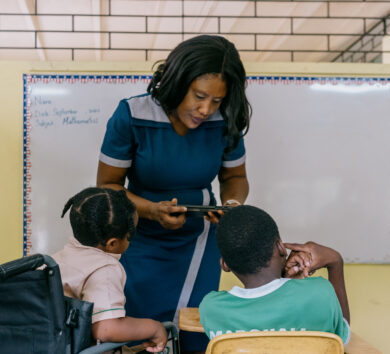

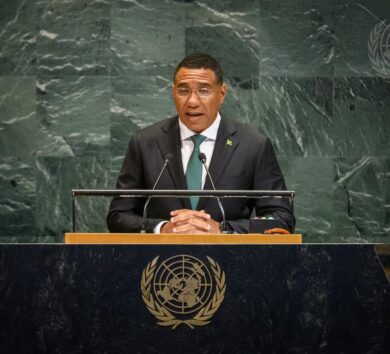


Comments